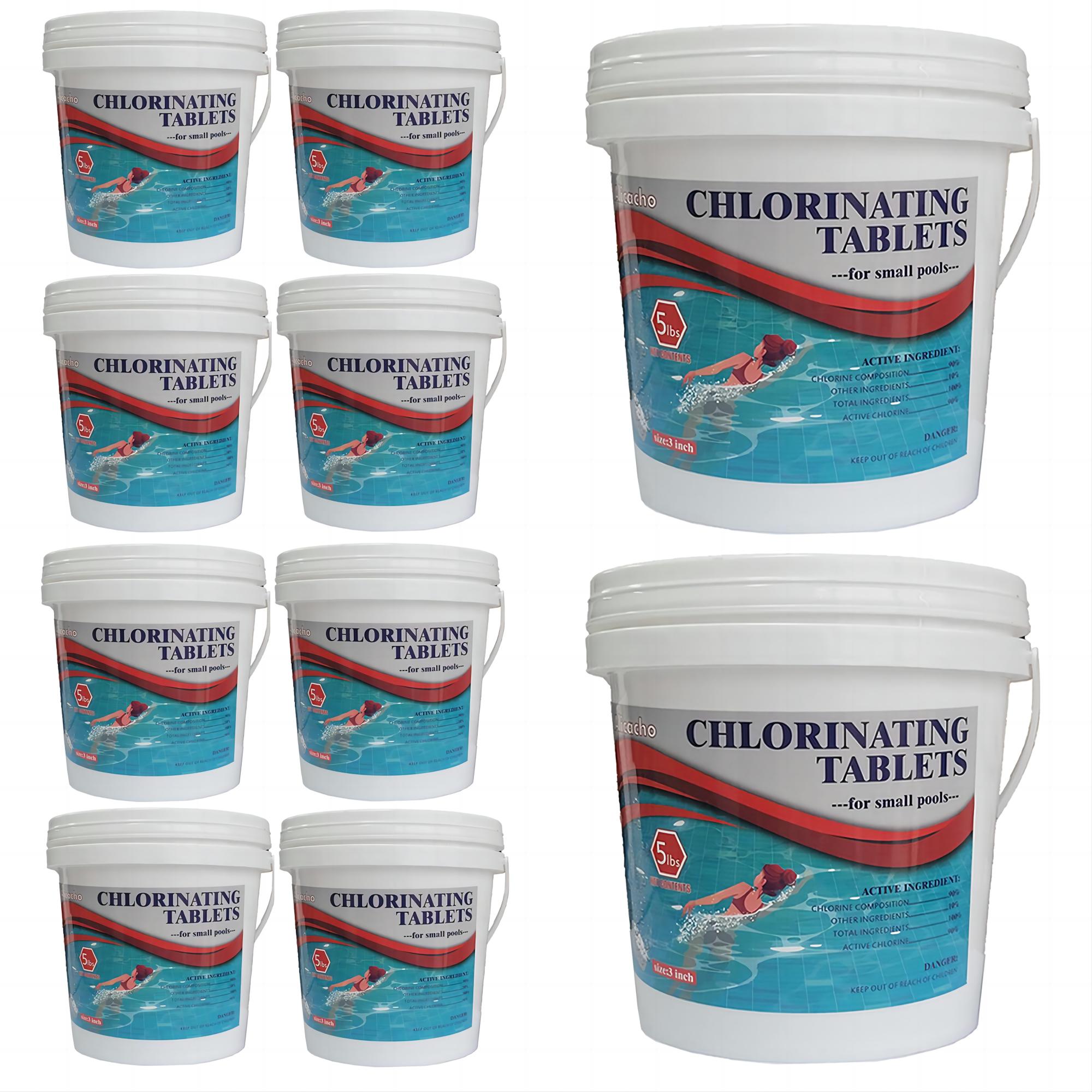Pools should not be drained all the time unless there are specific and important reasons to do so. First-time pool owners can be curious and may raise questions like, if I drain my pool will it collapse. Well, all questions are really important to be answered especially if you do not have enough experience to deal with a different pool of must-haves and must-dos.
In this article, we will identify factors to consider before draining your pool, and how anyone could figure out if a pool needs draining. There are also different risks once the pool has been improperly drained, which we will share as we go on through the article, below. A first-time pool owner would surely learn a lot from this post, so let us start!
Part 1. What Are The Different Risks Of Draining Your Pool?
There are a lot of possible risks when it comes to pool draining. This is why pool owners are asking, if I drain my pool will it collapse, since there are possibilities that it might happen. This is why it is important to have enough knowledge about pools before owning one. So, what are the possible risks if you drain your pool?
- Once you have decided to drain your pool, cracking the shell of the pool is possible to happen.
- You can also damage the surface or the interior lining of your pool.
- If you have a water meter, draining and refilling your water would cost you a lot of money.
- There is a possibility that you can damage pool lights.
- There is a possibility of a worst-case scenario where hazards can show up for pets, local wildlife, and even people.
- Draining your pool can cause your pool’s coping, as well as surrounding paving, or even timber work.
- Pools can have really expensive in-floor cleaning systems which can be damaged when you opt to drain your pool.
- It can cause it to float since there is hydrostatic pressure present.
There are also possibilities that you can improperly drain your pool, and once everything has gone wrong, damaging the liner and structure of your pool might happen. Once you start draining your pool, drained water must go somewhere, usually discharged in the ground. It can happen that with the large volume of water from the pool, upward hydrostatic pressure will be created, and once the force upward is too strong, it can cause the side walls to bulge out, and the floors to split leading you to a higher accumulated cost of repair.
If you have a fiberglass pool, the possible risks can be even greater. You can have the bottom part of your pool floated, once there has been improper draining conducted, things can lead to detrimental results. You can have damaged walls, floors, decks, and even plumbing systems. Some manufacturers of fiberglass pools do not have advised or even strictly forbid pool draining, such lengths can result in a possible voided warranty. So, when it comes to these things, you have to always consult your pool manufacturer or dealer before coming to a decision.
We have enumerated some of the examples of the possible things that might happen once you drain your pool water.
1. Fiberglass Pools
This one is just like fiberglass boats, they float easily once there is no water in them, this is why you are required to brace them before you completely drain them.
2. In-ground Concrete Pools
These pools are designed to withstand soil’s weight surrounding them structurally however, when there is too much high groundwater, the entire pool structure can be pushed out of the ground.
3. Above-ground Vinyl Liner Pool
If you drain this type of pool, the liner can shrink, and it could also be torn when you refill it once more, and you have to be mindful especially if you have liners that are too old.
Part 2. How Will You Know Your Pool Needs To Be Drained?
Of course, there are signs that you will notice that will trigger you to decide to drain your pool. These reasons must still be validated by your pool dealer, so you will know what procedures should you follow, as well as the risks that come along with pool draining.
- If you have vinyl pools, and you noticed that the liner is already due for replacement, you can consider pool draining.
- There are pool repairs and maintenance that can only be done once you have drained or emptied your pool.
- If your pool is made up of cement or gunite, when the time comes that it already needs acid wash, get a pool professional to execute it.
- You would not use your pool for a very long time, and you do not have anyone to take care of it.
- You need to stabilize the level of the TDI or the Total Dissolved Solids.
It is actually not advisable to drain your pool, and as for the question, if I drain my pool will it collapse, well, it might really happen and it can even cost you lots of money, and in addition to it, it is also really dangerous. There are a lot of ways you can do to make sure that pool problems are addressed without pool draining.
It is even not good to drain your pool once you see it turned swampy or green. Here is a comprehensive guide on transforming your green pool water into crystal-clear water. there are recommended safe levels based on the types of pools, and water must only be drained up to this point. Once it is not followed, your pool might collapse because of the weight of the liner, and the exposure to the sun, and as we have said before the only reason that you should consider before draining your pool water in a vinyl swimming pool is when you have to completely changed all its liners, otherwise, do not do it.
You can also check out the quick guide below on how to quickly remove algae from your pool without draining the water.
- Brushing: Use a pool brush to scrub the walls and floor of your pool, focusing on areas where algae are present.

- Shock Treatment: Add a shock treatment to your pool water to kill algae. Follow the manufacturer's instructions for dosage and application.

- Algaecide: Apply an algaecide to your pool according to the instructions on the product label. This helps to prevent algae growth and kill existing algae.
- Filtration: Run your pool filter continuously to remove dead algae and debris from the water.
- Regular Maintenance: Maintain proper water balance and sanitation levels in your pool to prevent algae growth in the future.
Part 3. To Summarize It All
It is not always advisable to drain your pools, it should be your last resort when it comes to pool maintenance procedures. Also, always make sure to consult your pool manufacturer or dealer before you fully decide. You do not want to damage your pool earlier, especially if it is one of your lone-time investments. This is why, it is really important to conduct further studies if you own a pool and do not have that much knowledge to run or operate it, it would be necessary to identify all the important precautions, so you may not damage your pool.
Part 4. FAQs
1. Where Should Water from the Pool be Drained?
It is important to know where your pool water should be drained. Always remember that the dechlorinated water must be drained to turf, gas, or areas that do not have erosion or do not run off into storm drains or creeks to avoid unwanted overflowing. You have to drain your pool into the sanitary sewer, on the other hand, if you own an in-ground pool, it is said that most of them have already a line connected to the sanitary sewer.
2. How much water should you only drain from your pool?
There are levels that you have to consider when draining your pool. If you are planning to use a solid winter cover, you should drain your pool to no more than 6 inches below the bottom part of your pool skimmer.
3. If you drain your pool, how long will it take you to finish?
Well, it would depend on the size of the pool you have, but it would normally take you up to 14 hours. It is advisable to do the pool draining during the daytime so you will have enough time to do it. You have to make sure that you monitor or supervise the pool draining since you do not have to let your pump run dry or else it will be damaged.
4. What can be the reasons for your pool draining so fast?
If you have decided to drain your pool, and draining is fast, well it can because of the increased evaporation rate. The increase in the evaporation rate is caused by high winds, humidity, and high temperatures as well. If you have an outdoor pool and it has no enclosures or tree cover, it can evaporate faster compared to those that have protection and shade since outdoor pools are more exposed to the weather. Any pool would drain so fast when it has lots of sunshine over it.



